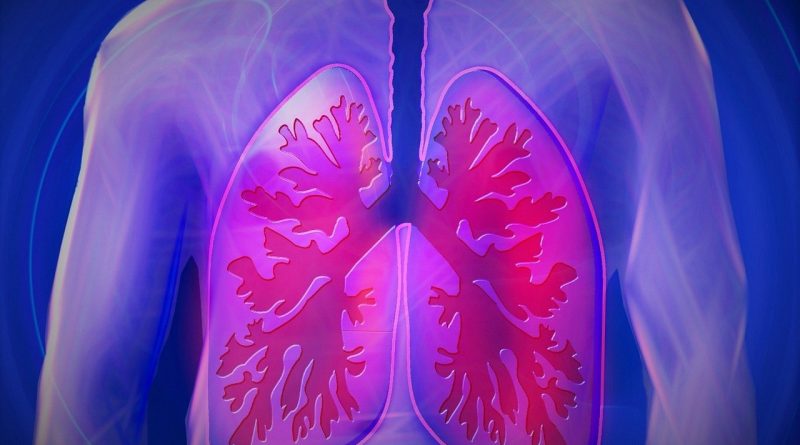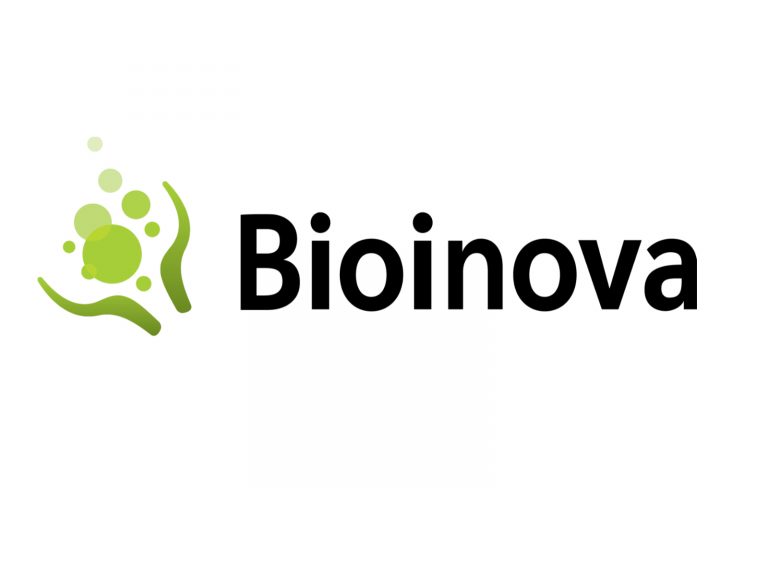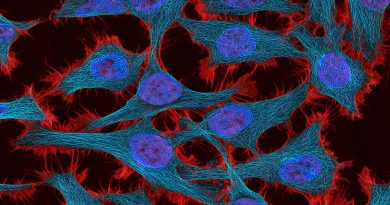Amgen’s KRAS G12C Inhibitor Lumykras™ Receives MHRA Authorisation
Amgen’s first-in-class KRAS G12C inhibitor LumykrasTM (sotorasib) has been granted Conditional Marketing Authorisation by the Medicines and Healthcare products Regulatory Agency (MHRA) for use in Great Britain.
Sotorasib becomes the first novel cancer therapy to receive Authorisation in Great Britain under Project Orbis
Sotorasib has become the first novel cancer therapy to receive Conditional Marketing Authorisation in England, Scotland and Wales under the Project Orbis review framework, Amgen UK announced on Friday. Authorisation of the first-in-class medicine follows a review of sotorasib’s role in treating patients with previously treated locally advanced or metastatic non-small cell lung cancer (NSCLC) with the KRAS G12C gene mutation.
KRAS is known as one of the most frequently mutated genes in human cancers. KRAS G12C is one of the most common identified or known driver mutations in NSCLC. NSCLC accounts for 80-85% of all lung cancers, and most patients (66%) are diagnosed with advanced or metastatic disease. There is a high unmet need for patients with advanced NSCLC receiving second or subsequent lines of therapy.
Sotorasib shown to inhibit cancer cell growth
Sotorasib, which is in a tablet form for oral administration, binds with a mutated KRAS G12C protein to ‘switch off’ the signals it sends to trigger cell division and cancer cell growth. Sotorasib has been shown to irreversibly bind to the inactive KRAS G12C protein, locking it in an inactive state permanently and leading to inhibition of cancer cell growth. Phase 2 Clinical Trial results have established that 37.1% of patients responded to treatment with 80.6% achieving disease control.
Project Orbis is an international collaborative programme between the U.S. Food and Drug Administration (FDA) and regulatory agencies across the globe. It is established to provide an efficient and effective review of novel oncology products and their potential benefit to patients and health systems. Project Orbis helps support earlier access to innovative new medicines, like sotorasib.
Professor Sanjay Popat, Consultant Medical Oncologist at The Royal Marsden NHS Foundation Trust, commented:
“Lung cancer driven by the KRAS G12C mutation is a highly aggressive cancer when it has relapsed after standard treatments and sotorasib is a first-in-class medicine, allowing eligible patients to receive daily tablets rather than chemotherapy in the hospital. I’m therefore delighted to see this rapid MHRA Conditional Marketing Authorisation. Importantly, in parallel the NHS is making excellent progress in the molecular analysis of lung cancer patients to find the KRAS G12C mutation and identify those patients who are most likely to benefit from this treatment.”
Dr. Tony Patrikios, Executive Medical Director, Amgen UK and Ireland, said:
“Today’s Conditional Marketing Authorisation by the MHRA marks an important moment in treating lung cancer patients, with a new targeted therapy, who have failed first-line treatment and face extremely poor outcomes with limited further treatment options. This reflects the clinical investigation programme, demonstrating the use of sotorasib in adult patients with KRAS G12C-mutated locally advanced or metastatic NSCLC who have progressed on, or are intolerant to, platinum-based chemotherapy and/or anti PD-1/PD-L1 immunotherapy.”
“Sotorasib is the first targeted KRAS G12C inhibitor to be authorised for use in Great Britain. Targeting KRAS has been a 40-year quest by scientists and researchers around the World. Approximately 13% of patients with NSCLC harbour the KRAS G12C mutation and whilst approximately 48,000 people are diagnosed with lung cancer every year in the UK1 it is estimated that 5,000 of these people will have KRAS G12C-mutated NSCLC.”
The MHRA review of sotorasib centred around the Phase 2 CodeBreaK 100 clinical study which evaluated sotorasib in 126 patients with KRAS G12C-mutated advanced NSCLC. Patients were treated with sotorasib 960 mg once daily orally, and prior to the trial, patients had progressed on platinum-based chemotherapy and/or PD1/PD-LI immunotherapy.
Earlier this year Data presented during the Presidential Symposium at the International Association for the Study of Lung Cancer (IASLC) 2020 World Conference on Lung Cancer (held 28th – 31st January 2021), demonstrated for the major efficacy outcome measures, a confirmed objective response rate (ORR) of 37.1% (95% CI: 28.6, 46.2), and a disease control rate (DCR) of 80.6% (95% CI: 72.6, 87.2). Additional outcome measures included a median progression-free survival of 6.8 months (95% CI: 5.1, 8.2) (data cut-off of December 1, 2020).
Recently published data in the New England Journal of Medicine show a median overall survival (OS) of 12.5 months (95% CI, 10.0 to could not be evaluated) among 124 evaluable patients, (data cut-off of March 15, 2021).2 The median duration of response (DoR), which was evaluated in 46 patients was shown to be 11.1 months (95% CI, 6.9 to could not be evaluated). (OS and DoR were secondary outcome measures).
The most common adverse reactions were diarrhoea (34%), musculoskeletal pain (31%), nausea (25%), fatigue (21%), hepatoxicity (19%) and cough (16%). The most common severe (grade ≥3) adverse reactions were increased ALT (5%), increased AST (4%), and diarrhoea (4%). The most common adverse reactions leading to permanent discontinuation of treatment were increased ALT (1%), increased AST (1%) and drug-induced liver injury (1%). The most common adverse reactions leading to dose modification were increased ALT (6%), increased AST (6%), and diarrhoea (6%).
Cancer Research UK estimates there are around 48,000 new lung cancer cases in the UK every year, making it the country’s third most widespread cancer form. While rates of detected lung cancer have lowered significantly in the last 30 years, it remains a condition with a high mortality rate, responsible for 21% of all cancer deaths in the UK (data from 2018). People in the UK diagnosed with lung cancer have a one-year survival rate of 41% (data from 2013-2017) and a 5-year survival rate of 16% (data from 2013-2017). Only 9.5% of people diagnosed with lung cancer are predicted to survive their disease for a decade or more.
About Amgen Oncology
Amgen develops innovative medicines in cancer and long-term conditions by using advanced human genetics to unravel the complexities of disease and understand the fundamentals of human biology.
Amgen Oncology is searching for and finding answers to incredibly complex questions that aim to advance care and improve lives for cancer patients and their families. Amgen’s research drives the company to understand the disease in the context of the patient’s life – not just their cancer journey – so they can take control of their lives.
For the last four decades, Amgen has been dedicated to discovering the firsts that matter in oncology and to find ways to reduce the burden of cancer. Building on its heritage, Amgen continues to advance the largest pipeline in the Company’s history, moving with great speed to advance those innovations for the patients who need them.
The UK and Ireland Amgen community is one of the largest outside of the company headquarters in California and is a European hub for R&D. More than 500 people at Amgen in the UK and Ireland contribute to the journey that turns molecules into medicines.
Recommended Companies
Ad
More Headlines








